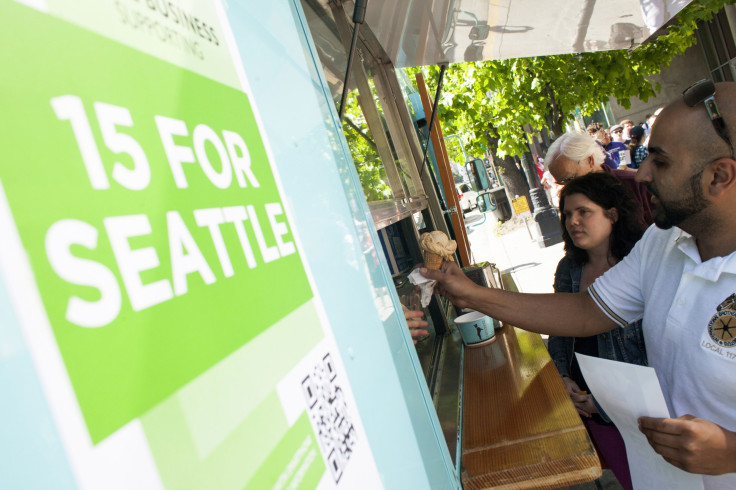Seattle Council Unanimously Approves $15 Minimum Wage, Highest in US

The Seattle City Council Monday unanimously approved a $15 minimum wage, the nation’s highest, to be phased in over the next seven years, the Seattle Times reports.
“A year ago, $15 was just a number on fast food picket signs. Today it’s become a reality for 100,000 Seattle workers,” said Sage Wilson, spokesman for Working Washington, a union-backed group that helped organize the first fast-food workers’ strike a year ago.
Advocates for the bill pointed to the high cost of living in Seattle and the low pay of even full-time minimum wage workers who currently earn about $19,300 a year.
“I think the fast food walkouts tapped into the frustration and anger at seeing lives shut down because of low wages,” said Councilmember Nick Licata. “We all see how much money is being concentrated in a few hands.”
New Mayor Ed Murray supports the move and stood in the back of council chambers as the vote was taken. A $15 minimum wage passed in SeaTac, home of the area’s main airport, in November after both labor and business spent heavily fighting each other on the measure.
Socialist Councilwoman Kshama Sawant, also elected in November, and her organization, 15 Now, made raising the minimum wage a political rallying cry and convinced many business leaders to work for a compromise proposal on Murray’s Income Inequality Advisory Committee. That committee of labor, business and nonprofit leaders agreed May 1 on a phased-in approach.
Polling in January and May found strong support among likely Seattle voters for raising the minimum wage, with almost three-fourths — 74 percent — in May saying they supported the mayor’s phased-in plan to reach $15.
© Copyright IBTimes 2025. All rights reserved.





















